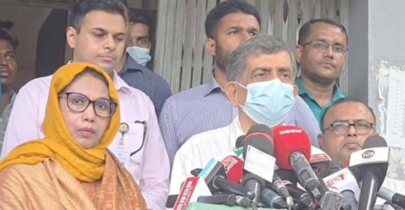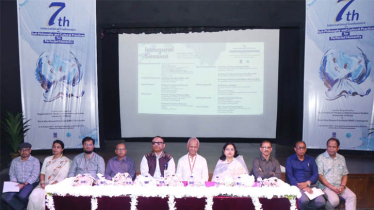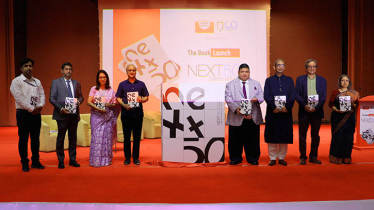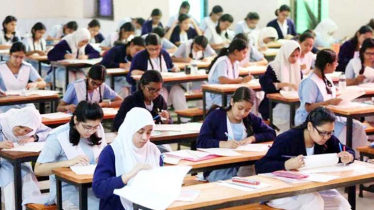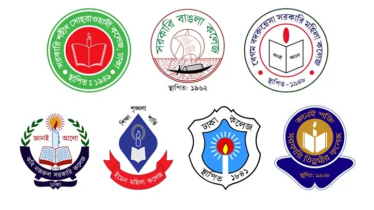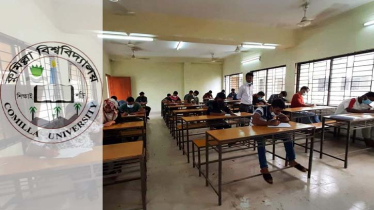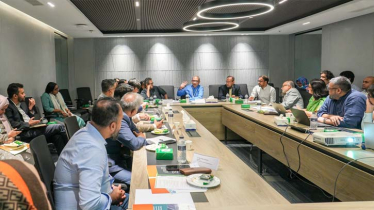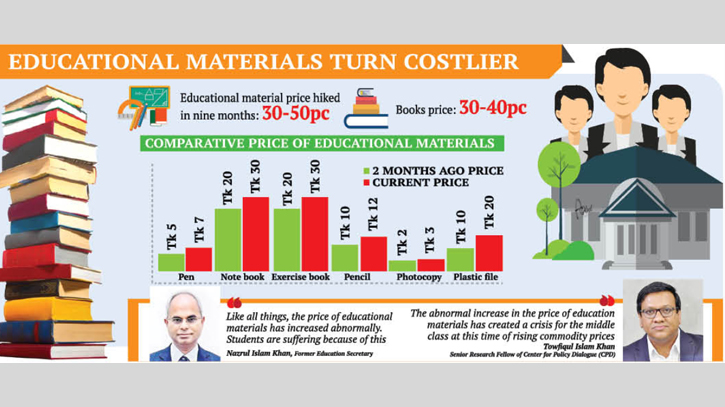
Photo : Messenger
Although a fundamental right, education has become increasingly expensive in recent times with the costs of various educational materials getting skyrocketed by 30-50 percent over the course of last 18 months.
In addition, tuition fees and related expenses in educational institutions have also risen – thereby placing a heavy burden on students from lower and middle-class families.
Since the beginning of this year, the cost of education has been on an uncontrolled upward trajectory. Consequently, the prices of educational supplies have skyrocketed.
While talking to affected individuals, The Daily Messenger came across a prevailing sense of frustration and dissatisfaction from among a rising segment of the society that included both students and their suffering parents.
It was seen that the prices of all types of educational materials have marked a significant increase in just nine months of this year.
When asked by this correspondent, former Education Secretary Nazrul Islam Khan commented on the situation. According to him, "Like all other commodities, educational material prices have experienced an abnormal increase. Students are suffering due to this issue. Subsidies in the education sector could play a crucial role in alleviating this problem. Education is a vital sector for our nation, and maintaining stability, possibly through subsidies, is imperative."
As of Monday, it became evident that the prices of all educational materials, such as notebooks, paper, pens, pencils, color pencils, rulers, geometry sets, scientific calculators, books, and school bags, have escalated exorbitantly.
Over the past two months, a notebook that used to cost 20 taka is now being sold for 30 taka, and a 5-taka pen is now being priced at 7 taka. Previously, 65-gram reams of paper were sold for Tk 1,285, but now it is priced at Tk 2,600.
Furthermore, the cost of small exercise books has risen from Tk 20 to Tk 30, and medium-sized ones have increased from Tk 30 to Tk 40. A 120-page ledger, once priced at Tk 35, is now selling for Tk 50, and 200-page ledgers have risen from Tk 50 to Tk 75. The cost of 300-page ledgers now stands at Tk 90, up from Tk 60 a year ago.
Pens and pencils have not been spared from these price hikes either. A 5-taka pen has increased by Tk 2, and pens costing Tk 10-15 have seen a Tk 3-4 increase. Pencils, too, have experienced a similar rate of price increase. The price of pencil boxes has risen by Tk 20-30, depending on the brand. Additionally, essential school items like rulers and school bags have also become more expensive.
Even photocopying charges have surged in the market. In the past, it used to cost between one and a half to two taka to photocopy a page, but now it costs between two and a half to three taka. In local areas, the charge for photocopying exceeds Tk 3. The price of each plastic file has gone up from Tk 10 to Tk 15. As a result, parents are finding it increasingly difficult to afford their children's education.
Middle-class families are making sacrifices by cutting expenses on food and other necessities to support their children's education, while the education of some lower-class children is on the verge of being discontinued.
The escalating prices of educational materials are having a detrimental effect on the education system, leading to a decline in student enrollment in this year's secondary and higher secondary examinations. Simultaneously, there has been an increase in the number of dropouts, which is likely to leave low-income families unable to support their children's education.
Senior Research Fellow at the Center for Policy Dialogue (CPD) Towfiqul Islam Khan told The Daily Messenger, "The abnormal surge in the cost of educational materials is causing a crisis for the middle class, especially amidst rising commodity prices. However, the issue of rising educational material prices is not receiving the attention it deserves. The government appears to be unconcerned. If education becomes cost-prohibitive, it may discourage students from low-income backgrounds, and many might be forced to drop out."
Khan further suggested that efforts should be made to control prices, possibly by reducing Value Added Tax (VAT) or taxes on educational products. Additionally, he emphasized the need to address the uncontrolled increase in paper prices by establishing paper factories, ensuring a consistent supply of gas and electricity to these factories, minimizing paper wastage, and cracking down on syndicate manipulations. Khan also recommended taking effective measures to import paper raw materials with lower import duties.
It has been observed that school, coaching, and private tuition fees have also increased, while incomes have remained stagnant. This has left students and parents deeply concerned about their financial stability and the educational prospects of their children. Many believe that there is a crisis in the country and are calling for a more focused approach to the education sector. The persistent rise in the cost of educational materials poses a significant risk, as it may lead to a higher dropout rate among students.
Several traders have reported that paper prices have nearly doubled in the past year, with prices continuing to rise monthly. This has a direct impact on the cost of books, with the prices of nearly all types of books increasing by 30-40 percent over the course of this year.
Saurav Biswas, a student at Dhaka University, expressed his extreme discomfort with the surging prices of educational materials. The costs of books, notebooks, and photocopies have been rising abnormally, forcing him to often borrow books from friends instead of purchasing them.
He is faced with the challenges in managing his living and educational expenses, making it increasingly difficult to pursue his studies.
Messenger/Sanjay/Disha

